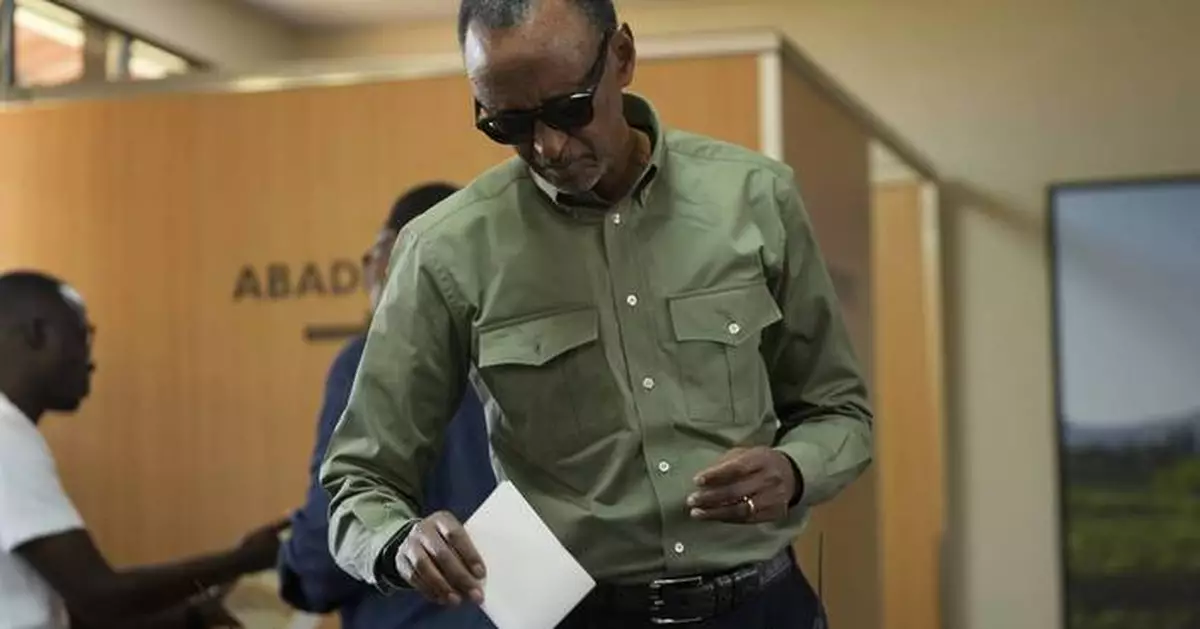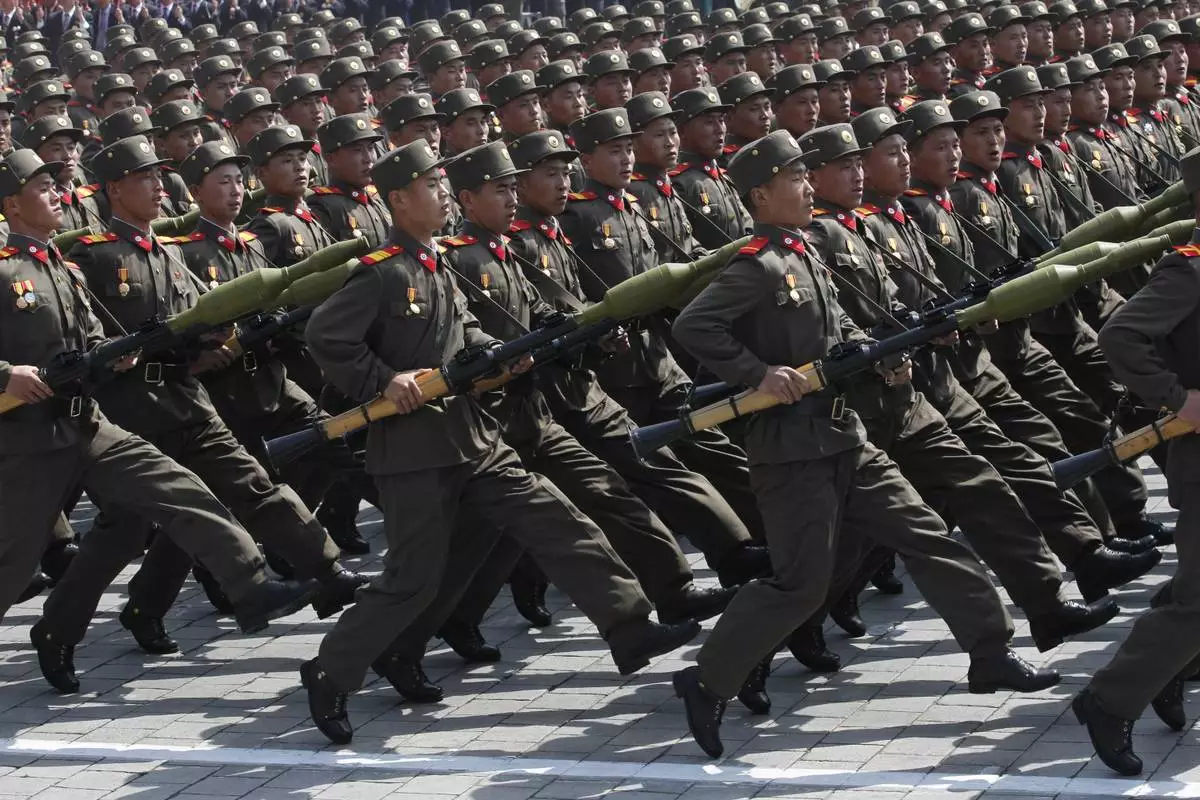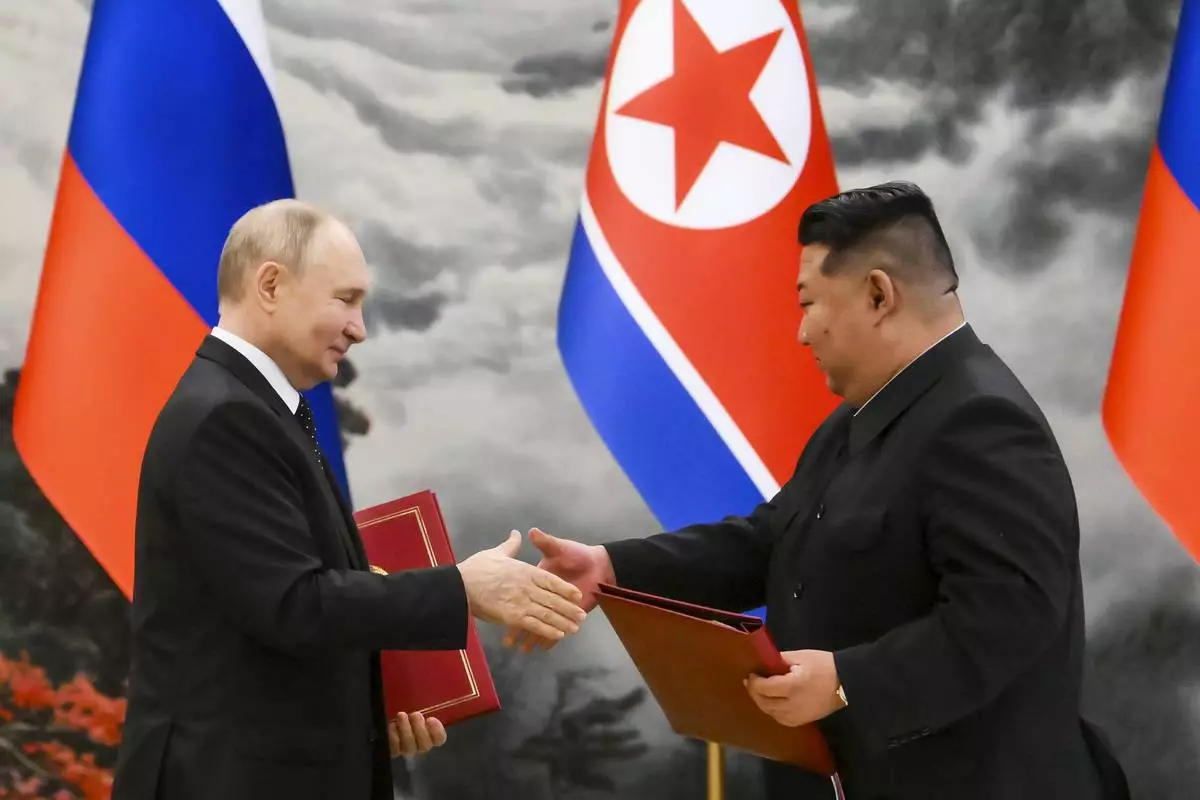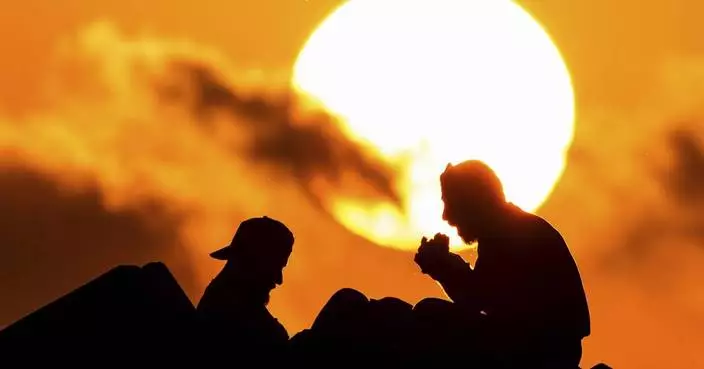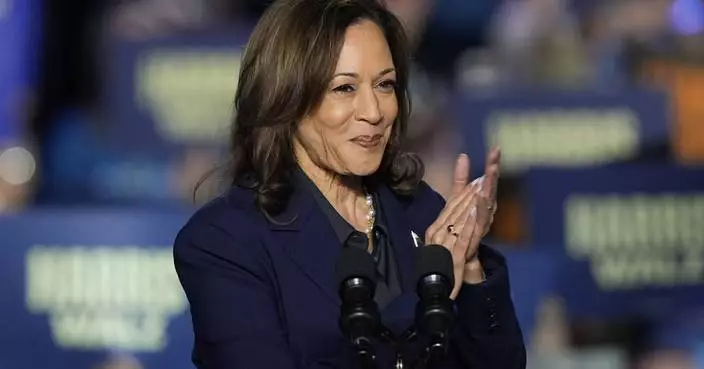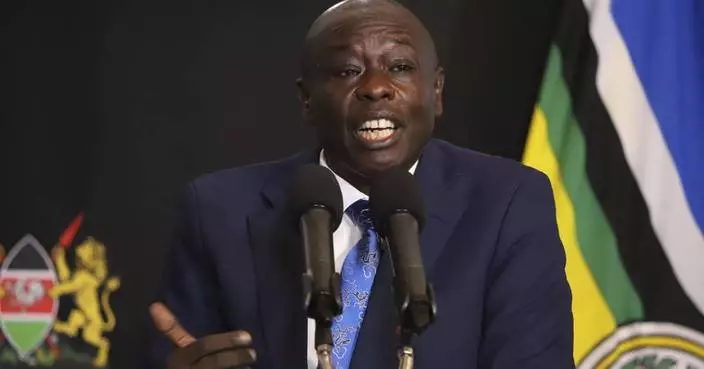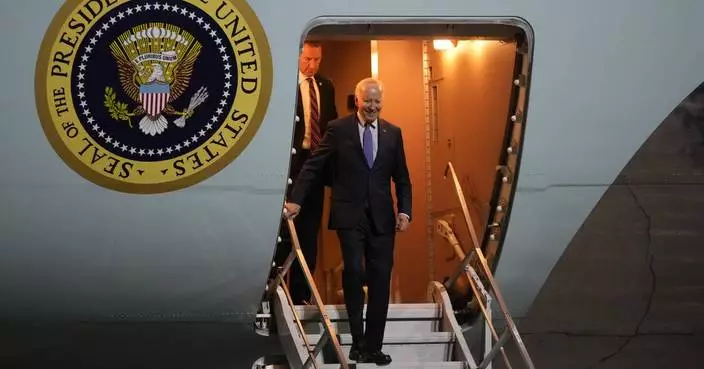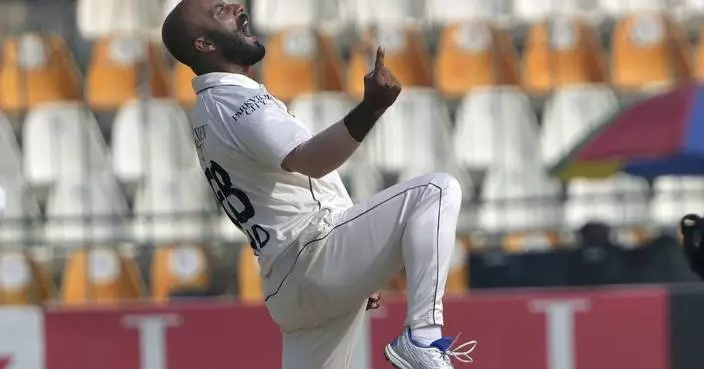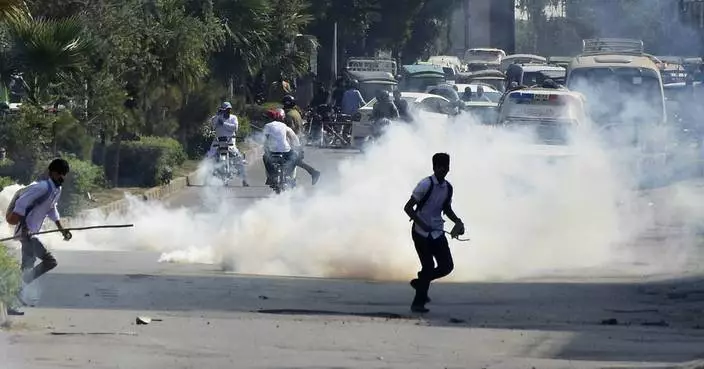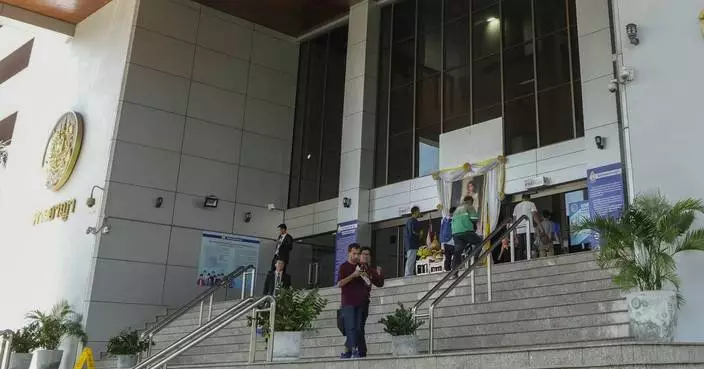NAIROBI, Kenya (AP) — He may be the president of a small, landlocked state in central Africa, but Paul Kagame has always had outsize dreams.
In recent months, Rwanda’s president has embarked on perhaps the biggest of them all by pitching to bring a Formula 1 Grand Prix to a country that was mired in genocide 30 years ago but now sees itself as one of the continent’s leaders.
Determined to overcome his country’s geographical disadvantages, Kagame has relentlessly pursued a political, diplomatic and economic strategy to make Rwanda an African heavyweight.
In the past four years, he has sent troops to engage rebels in the Central African Republic and mount counterinsurgency operations in Mozambique.
At home he has pursued economic reforms to lure foreign investors, transforming Rwanda into a country with a reputation as one of Africa’s least corrupt and most business friendly, despite Kagame’s own reputation as a democratic laggard.
But when it comes to sport, his aspirations extend well beyond Africa.
Since 2018, his government has secured sponsorship deals with some of Europe’s biggest soccer clubs, developed a partnership with the NBA and spent hundreds of millions of dollars in developing Rwanda’s sports facilities.
Next year Rwanda will stage the world championships for bicycle road racing.
Kagame himself has built a close working relationship with Gianni Infantino, the president of FIFA, which has opened an office in Rwanda and held its annual meeting there last year.
Now he is taking the biggest step yet in his ambition to transform the country into a global sporting power, with F1 executives confirming that they are in exploratory talks with Kagame’s government about a possible Rwandan Grand Prix.
Experts say that could require billions of dollars in investment and outlay. Given that Gross Domestic Product stands at just $14.1 billion and that there is at yet no track on which to host a race, the idea of a Rwandan Grand Prix might seem far-fetched.
Yet with seven-time world champion Lewis Hamilton pushing for an African F1 race and given Rwanda’s reputation as one of the continent’s more reliable and transparent states, it is not impossible either.
Stefano Domenicali, F1’s chief executive, has described Rwanda’s proposal as “serious”, telling motorsport.com that “they have presented a good plan.”
“We want to go to Africa, but we need to have the right investment, and the right strategic plan," he added.
The country’s motorsports profile may receive a boost when the FIA’s governing body hosts its annual general assembly and prize giving in Kigali, Rwanda’s capital, in December—the first time the ceremony has been held in Africa.
Both the Kagame administration and F1 officials are reluctant to reveal details about what they describe as “ongoing” discussions, but Rwandan government spokeswoman Yolande Makolo said hosting an F1 race would allow the country to move “from being a consumer of sport to a participant in the business of sports.”
“Rwanda’s interest in Formula 1 aligns with our strategy to leverage sports for transformative impact,” she said. “We seek every opportunity to drive forward Rwanda’s development, including through global sporting partnerships.”
Rwanda is not alone in seeking an F1 race, with potential competitors also in Africa. South Africa, which hosted Africa’s last Grand Prix in 1993, and Morocco, which staged 13 races between 1925 and 1958, are also reportedly keen to reenter the fray.
That Rwanda is bidding at all reveals much about how Kagame views sport as an economic and geopolitical weapon.
If Rwanda can navigate the obvious economic risks, its ambitious sporting strategy could yield big dividends, both financially and diplomatically. The Seoul Olympics in 1988 helped South Korea transform its global image as an insulated, war-ravaged backwater to an emerging economy open to the world.
Although no other sub-Saharan country has quite such a comprehensive and ambitious strategy, Rwanda is following the example of countries like Saudi Arabia, Bahrain and Qatar, which have used sport — including the hosting of Grand Prix races — to boost their reputations abroad.
Like them, Rwanda has faced criticism that it is using sport to distract attention from a chequered human rights record.
Kagame, who secured 99.2 percent of the vote in July’s presidential election, is accused of using increasingly repressive methods to consolidate his 30-year grip on power. Critics of his ruling Rwandan Patriotic Front have experienced intimidation, arrest and even death.
Meanwhile, the United Nations has accused Kagame’s government of stoking, funding and arming a rebellion in the Democratic Republic of Congo, Rwanda’s troubled neighbour to the east. The United States cut military aid to Rwanda in protest.
Both Rwanda and its international sporting partners have faced accusations that they are using sport to divert attention from Kagame’s rights record, a practice known as “sportswashing."
In August, two U.S. senators, Republican Marsha Blackburn and Democrat Jeff Merkley, wrote to the NBA accusing it of “putting profit over principle” by forging close ties with the Rwandan government.
Some European lawmakers have raised similar objections to question Rwanda’s sponsorship of soccer clubs Arsenal, Paris Saint Germain and Bayern Munich, a strategy Kagame’s government says will boost tourism.
The prospect of a Rwandan F1 race has renewed such criticism.
“The critical question is what kind of due diligence Formula 1 did to ensure it lives up to its own stated human rights commitments and avoid contributing to laundering the Rwandan government’s human rights record,” said Clementine de Montjoye, senior researcher in the Africa division at Human Rights Watch. “Rwanda’s partners should open their eyes and see Kigali’s wide-reaching human rights abuse for what it is: the consequence of three decades of impunity for the ruling Rwandan Patriotic Front.”
Rwanda is far from the only country with a contentious rights record that has used sport to shape a different narrative about itself. Saudi Arabia, stung by scrutiny following the murder of journalist Jamal Khashoggi in 2018, has invested more than $10 billion in sport, including golf, F1 and soccer. Infantino has steered the men's 2034 World Cup hosting rights toward Saudi Arabia.
Qatar, which has close commercial links with Rwanda, spent $230 billion on hosting the 2018 FIFA World Cup.
Yet Rwanda is a financial minnow in comparison and depends on donor aid to fund 40 percent of government expenditure, leading to questions about the wisdom of seeking to emulate Gulf petrostates.
“The Saudis employed this sort of strategy to get people to forget about awkward things like dismembering journalists,” said Michela Wrong, author of “Do Not Disturb,” a book critical of Kagame. “But the difference is Saudi Arabia can afford these deals. Rwanda can’t. Rwanda is a very poor country, heavily dependent on subsistence agriculture and foreign aid, which is pouring millions of dollars into some of the world’s richest clubs. There is something innately distasteful about this.”
There is little doubt that Kagame’s sports strategy is an economic gamble.
Despite his business-friendly policies, Rwanda’s market has proved too small to lure significant inward investment, something that hosting big-ticket sporting events could go some way to address, particularly if it gains “first mover advantage” by getting ahead of other African rivals.
On the other hand, even richer states have struggled to make event hosting pay.
“Sporting events are incredibly expensive to stage and the net impact is very often negative rather than positive,” says Simon Chadwick, a professor of sport and geopolitical economy. “For Rwanda, given its relative economic weakness, this will be a concern.”
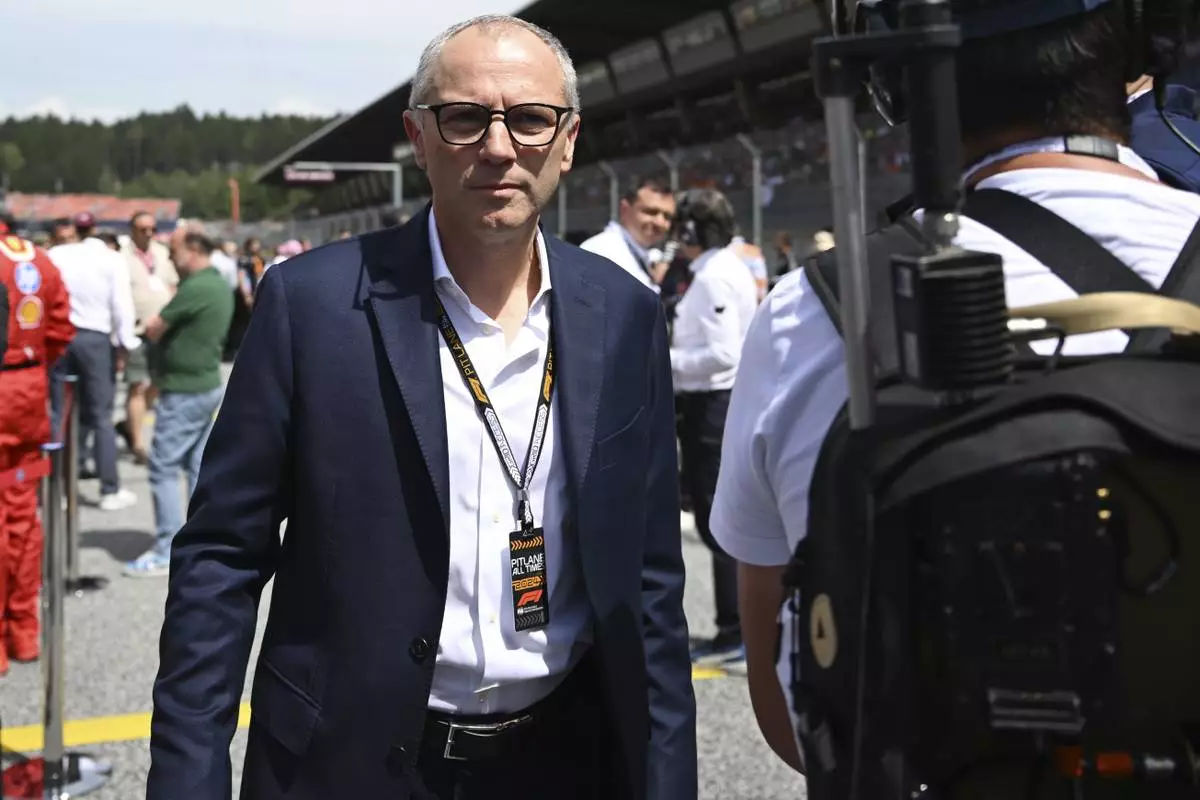
FILE - Formula One President Stefano Domenicali before the start of the Austrian Formula One Grand Prix race at the Red Bull Ring racetrack in Spielberg, Austria, June 30, 2024. (AP Photo/Christian Bruna, File)
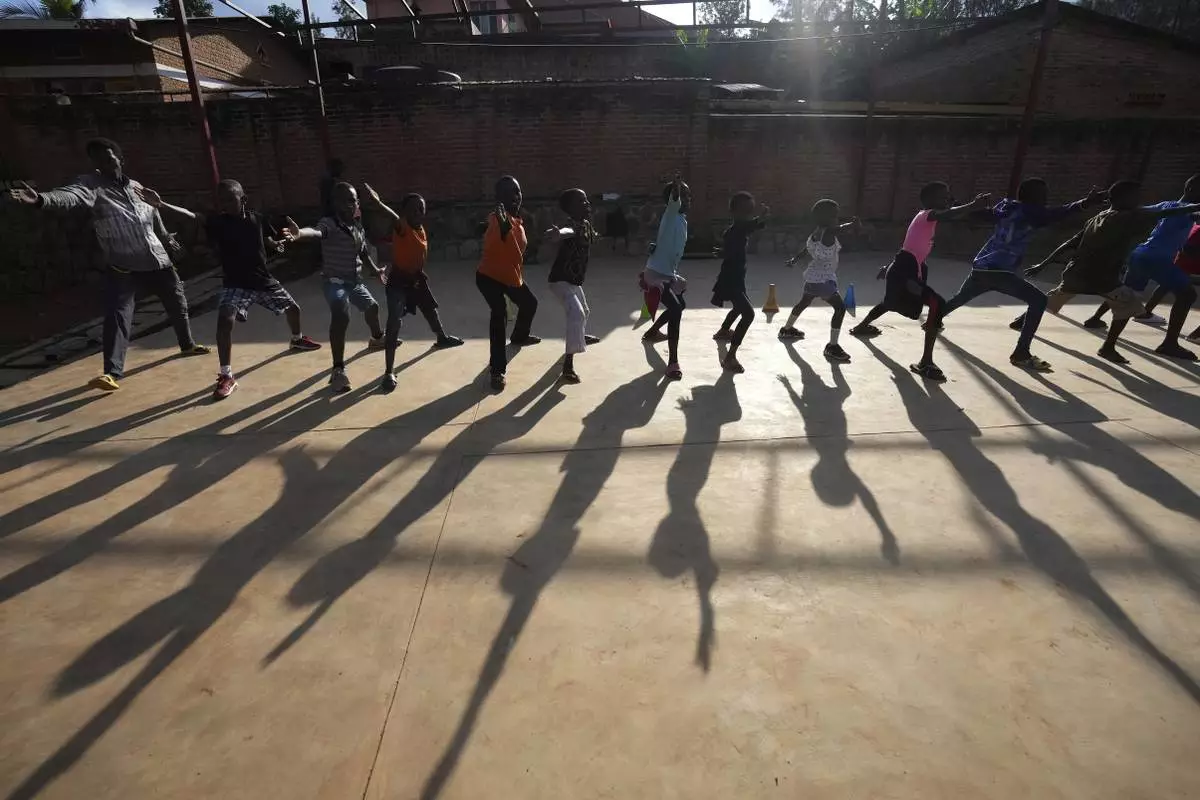
FILE -Children practise fencing game, on the outskirts of Kigali, Rwanda, April 4, 2024. (AP Photo/Brian Inganga, File)

FILE -Rwandan President Paul Kagame, left, and his wife, first lady Jeannette Kagame lead other dignitaries as they arrive for a ceremony to mark the 30th anniversary of the Rwandan genocide, held at the Kigali Genocide Memorial, in Kigali, Rwanda, April 7, 2024. (AP Photo/Brian Inganga, File)
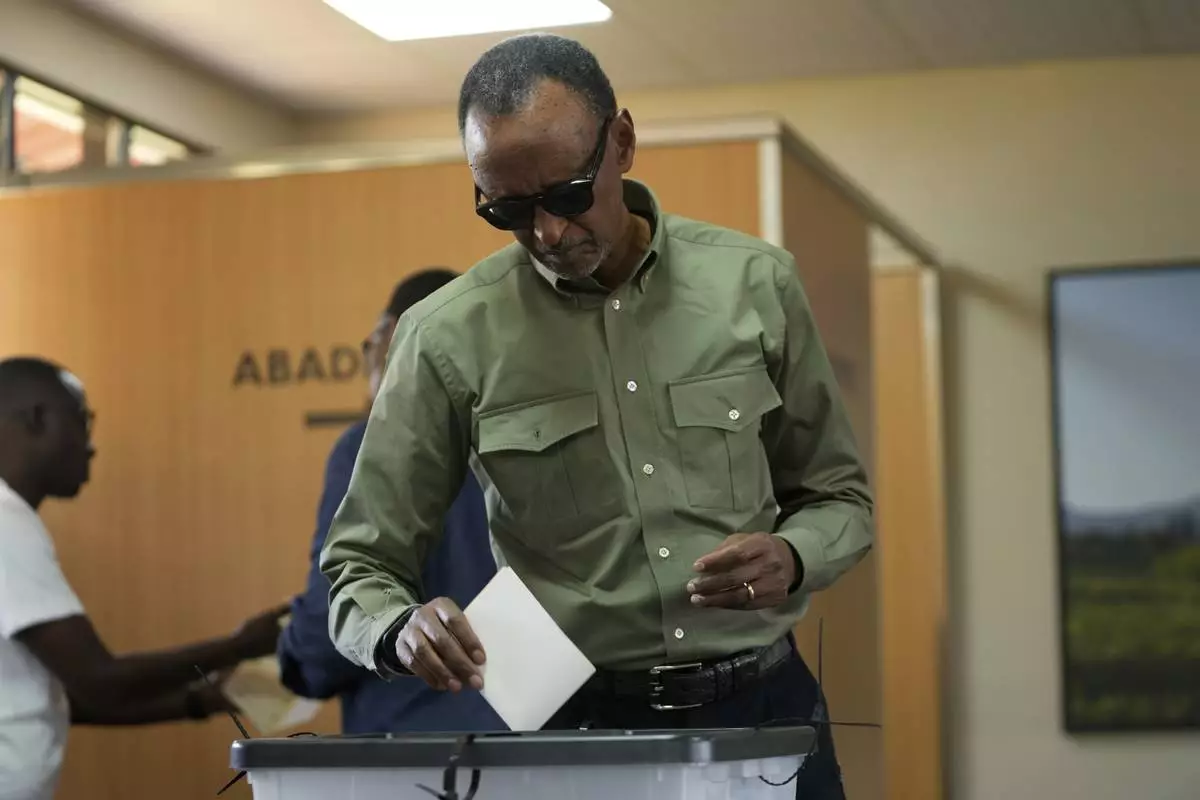
FILE - Rwanda's President Paul Kagame casts his vote in a presidential election, in Kigali, July 15, 2024. (AP Photo/Brian Inganga, File)


